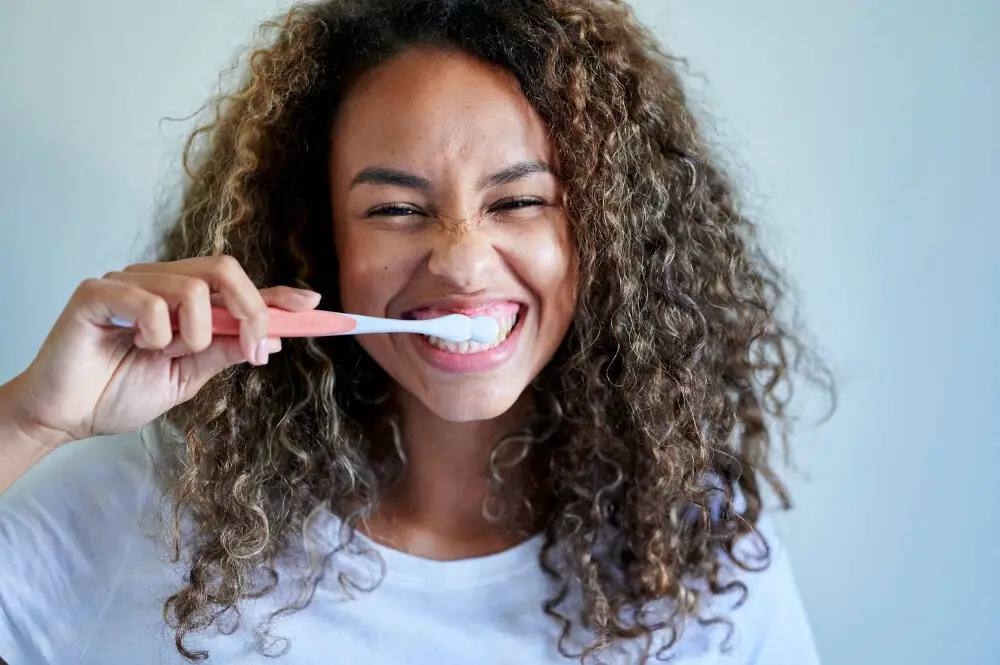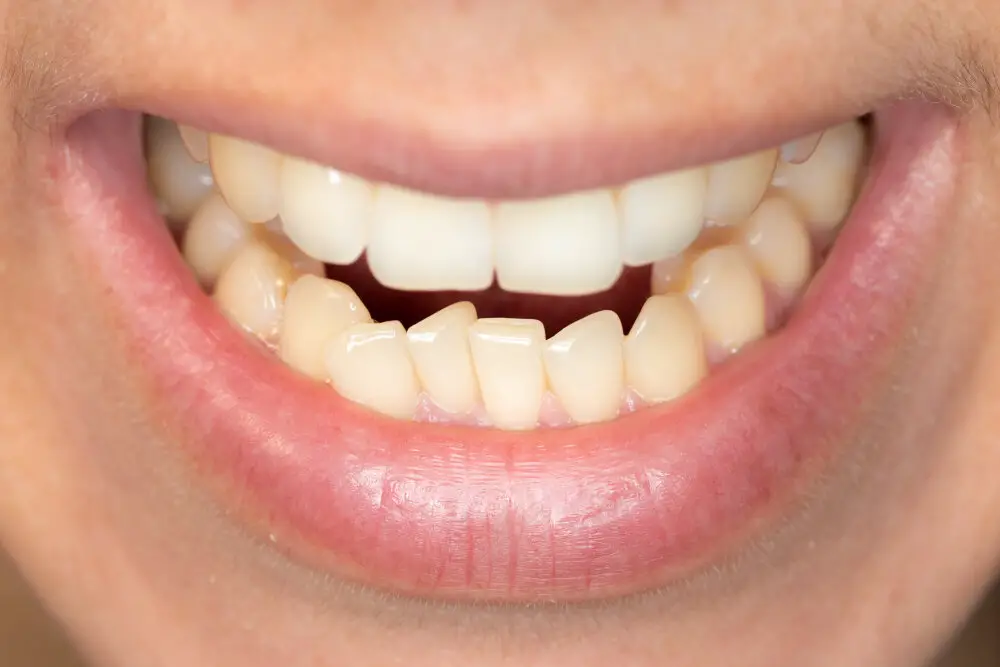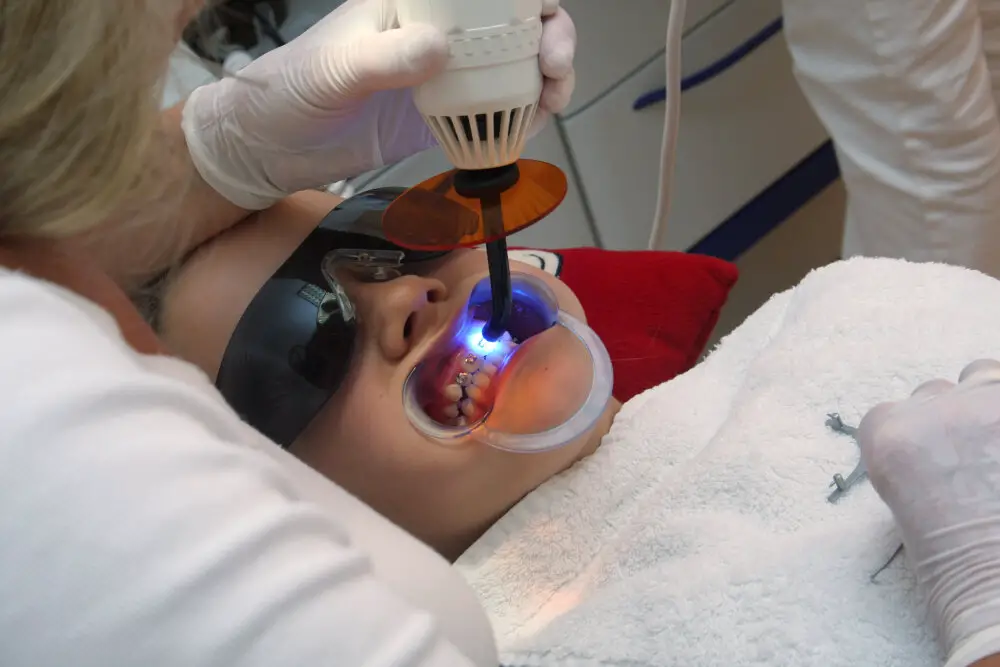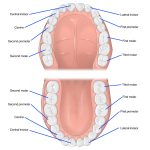Maintain Your Dog’s Dental Health: How Often Should You Get Your Dog’s Teeth Cleaned?

Dental health is essential for the overall well-being of your furry friend. While most pet owners focus on feeding their pets with high-quality food and providing regular exercise, dental hygiene often takes a back seat. However, poor dental health can lead to various health complications, including bad breath, gum disease, tooth decay, and even heart disease. Therefore, it’s crucial to maintain your dog’s dental health by scheduling regular teeth cleaning appointments with your veterinarian. The question is, how often should you get your dog’s teeth cleaned? Well, the answer varies from one dog to another, depending on factors such as age, breed, diet, and dental health history. Generally, dogs should get their teeth cleaned every six to twelve months. However, some dogs may require more frequent cleaning, while others may need less. In this article, we’ll explore the factors that affect your dog’s dental health and help you determine how often you should schedule teeth cleaning appointments for your furry friend.
Maintaining your dog’s dental health is crucial for their overall well-being. Poor dental hygiene can lead to various health problems such as gum disease, tooth decay, and bad breath. It can also cause pain and discomfort for your furry friend, making it harder for them to eat and enjoy their food. Regular dental check-ups and cleanings can prevent these issues and keep your dog’s teeth and gums healthy. Additionally, a healthy mouth can prevent bacteria from spreading to other parts of the body, reducing the risk of infections and other health problems. Therefore, it is important to prioritize your dog’s dental health and schedule regular cleanings with your veterinarian to ensure that your furry friend is healthy and happy.
Dental problems are common in dogs, just as they are in humans. One of the most common dental problems in dogs is periodontal disease, which is caused by a buildup of plaque and tartar on the teeth. This can lead to inflammation, infection, and ultimately tooth loss if left untreated. Other common dental problems in dogs include fractured teeth, tooth abscesses, and oral tumors. These issues can cause pain, difficulty eating, and even systemic infections if left unaddressed. It’s important for dog owners to stay vigilant and schedule regular dental checkups with their veterinarian to catch and treat these issues early. Additionally, regular at-home dental care, such as brushing your dog’s teeth and providing dental chews or toys, can help prevent dental problems from developing in the first place.
Factors Affecting the Frequency of Teeth Cleaning

The frequency of teeth cleaning in dogs is affected by several factors. The first factor is the breed of the dog. Some breeds, such as small dogs, are prone to dental problems and require more frequent cleaning. Other breeds, such as greyhounds, have teeth that are tightly packed, making it difficult for food particles and bacteria to accumulate. As a result, these dogs require less frequent cleaning. Age is another factor that affects the frequency of teeth cleaning. Older dogs tend to have more dental problems, such as tooth decay and gum disease, and require more frequent cleaning than younger dogs. Diet is also a significant factor that affects the frequency of teeth cleaning. Dogs that eat a diet rich in sugar and carbohydrates are more prone to dental problems than those that eat a balanced diet. Furthermore, dogs that eat soft food are more likely to develop dental problems than those that eat dry food, as the latter helps to clean the teeth. The frequency of teeth cleaning is also affected by the dog’s dental hygiene routine. Dogs that receive regular brushing and dental check-ups require less frequent cleaning than those that do not. Finally, the frequency of teeth cleaning is influenced by the dog’s overall health. Dogs with underlying health conditions, such as diabetes, are more prone to dental problems and require more frequent cleaning.
When it comes to maintaining your dog’s dental health, age and breed play a crucial role. Different breeds have different dental needs, and some are more prone to dental issues than others. For instance, small breeds such as Chihuahuas and Yorkshire Terriers are more prone to dental problems than larger breeds. Additionally, age can also affect your dog’s dental health. As your dog ages, they become more susceptible to dental issues such as gum disease and tooth decay. Therefore, it’s important to take your dog’s age and breed into consideration when deciding how often to get their teeth cleaned. Regular dental checkups and cleanings can help prevent dental problems and keep your dog’s teeth healthy and strong.
Diet and feeding habits play a crucial role in maintaining your dog’s dental health. Feeding your dog a balanced and nutritious diet can help prevent plaque buildup, which can lead to tooth decay and gum disease. Avoid giving your dog table scraps and sugary treats, which can increase the risk of dental problems. Instead, opt for high-quality dog food and dental chews that are specifically designed to promote dental health. Additionally, it’s important to monitor your dog’s water intake and ensure that they have access to fresh water at all times. By following these dietary guidelines, you can help keep your dog’s teeth clean and healthy.
Maintaining your dog’s dental health is crucial, and a good dental care routine at home can help prevent dental problems. Brushing your dog’s teeth regularly is the most effective way to remove plaque and prevent tartar buildup. You can use a toothbrush and toothpaste specially designed for dogs, or a finger brush. Start by introducing the toothbrush slowly and make it a positive experience for your dog. Additionally, dental chews and toys can help to clean teeth and freshen breath. It’s also important to monitor your dog’s diet and avoid feeding them sugary or starchy foods that can contribute to dental problems. By incorporating these habits into your dog’s routine, you can help keep their teeth and gums healthy and reduce the need for professional dental cleanings.
Preexisting dental conditions in dogs can have a significant impact on their overall health and well-being. Dental problems such as periodontal disease, gingivitis, and tooth decay can cause discomfort and pain, leading to difficulties eating, infections, and even tooth loss. These conditions can also lead to more severe health issues, such as heart disease and kidney failure. Therefore, it is crucial to maintain your dog’s dental health by regularly brushing their teeth, providing dental chews, and taking them for professional dental cleaning at least once a year. By keeping your dog’s teeth healthy, you can help them lead a happier and healthier life.
Signs that Your Dog Needs Dental Cleaning

Maintaining your dog’s dental health is crucial for their overall well-being. Just like humans, dogs can suffer from dental problems such as tooth decay, gum disease, and bad breath. It’s essential to keep a close eye on your dog’s dental health and watch out for any signs that they need dental cleaning. One of the most common signs of dental problems in dogs is bad breath. If your dog’s breath smells unpleasant, it could be a sign of a dental problem that needs to be addressed. Other signs include swollen or bleeding gums, loose or missing teeth, and difficulty chewing or eating. If you notice any of these signs, it’s important to take your dog to the vet for a dental check-up and cleaning. The vet will examine your dog’s teeth and gums and recommend a course of treatment based on their findings. Regular dental cleanings are necessary to prevent dental problems and keep your dog’s teeth and gums healthy. How often you should get your dog’s teeth cleaned depends on their age, breed, and overall health. Generally, it’s recommended to get your dog’s teeth cleaned at least once a year. However, some dogs may need more frequent cleanings depending on their individual needs. By keeping an eye on your dog’s dental health and getting regular cleanings, you can help ensure that they stay happy and healthy for years to come.
Bad breath, also known as halitosis, is a common sign of poor dental health in dogs. This unpleasant odor often occurs due to the buildup of bacteria in the mouth, which can lead to gum disease and tooth decay. If left untreated, bad breath can progress to more serious health problems, including infection and tooth loss. Regular dental checkups and cleanings can help prevent the buildup of plaque and tartar, reducing the risk of bad breath and other dental issues. Additionally, regular brushing and providing dental chews or toys can also contribute to maintaining good oral hygiene in dogs.
Discoloration or tartar buildup on a dog’s teeth is a common dental issue that can lead to bad breath, gum disease, and tooth loss if left untreated. Tartar buildup occurs when food particles and bacteria accumulate on the teeth and harden over time, forming a yellow or brownish substance that can be difficult to remove with regular brushing alone. Discoloration is often a sign of early tartar buildup and should be addressed promptly to prevent further damage. Regular dental cleanings are essential to maintaining your dog’s oral health and preventing serious dental problems down the line. Depending on your dog’s individual needs, your veterinarian may recommend cleanings every six months to a year.
Bleeding or swollen gums in dogs can be a sign of periodontal disease, a common dental problem that affects many canines. This condition occurs when bacteria build up on the teeth and gums, leading to inflammation, gum recession, and even tooth loss. Regular dental cleanings, both at home and at the veterinarian’s office, can help prevent this condition from developing or worsening. In addition, providing your dog with chew toys and dental treats can help remove plaque and tartar buildup, keeping their teeth and gums healthy and strong. If you notice any signs of bleeding or swelling in your dog’s mouth, it’s important to seek veterinary care right away to prevent further damage and discomfort.
Difficulty chewing or loss of appetite can be a sign of dental problems in dogs. Poor dental health can cause pain and discomfort while eating, leading to a loss of appetite and potentially weight loss. Additionally, difficulty chewing can result in larger pieces of food being swallowed, which can lead to digestive issues or even choking. It is important to regularly monitor your dog’s eating habits and dental health to catch any potential problems early on. Regular dental cleanings, either at home or by a veterinarian, can help prevent dental disease and promote overall health in your furry friend.
Professional Teeth Cleaning Options

Maintaining your dog’s dental health is essential to their overall well-being. Professional teeth cleaning options are available to ensure that your dog’s teeth stay clean and healthy. Regular teeth cleaning can prevent tooth decay, gum disease, and other dental problems that could lead to more severe health issues. There are several professional teeth cleaning options available, including dental scaling, polishing, and fluoride treatment. Dental scaling is a process that involves the removal of plaque and tartar buildup from your dog’s teeth. This procedure is typically performed under general anesthesia to ensure that your dog remains comfortable and relaxed throughout the process. Polishing is the next step in the cleaning process, which involves smoothing out any rough spots left on the teeth after scaling. The final step is a fluoride treatment, which helps to strengthen your dog’s teeth and prevent future decay. Professional teeth cleaning options are an effective way to ensure that your dog’s dental health remains in top condition, and regular cleanings can help to prevent more severe dental issues from developing.
Veterinary dental cleaning is an essential aspect of pet care that pet owners should prioritize. It involves a thorough cleaning of your pet’s teeth and gums to prevent dental diseases such as gingivitis, periodontitis, and tooth decay. During the procedure, a veterinarian will examine your pet’s mouth for any signs of dental problems, such as tartar buildup, gum inflammation, and loose teeth. They will then use specialized tools to remove plaque and tartar, polish the teeth, and apply fluoride to strengthen the enamel. The frequency of dental cleaning depends on your pet’s age, breed, and dental health status, with most veterinarians recommending annual cleanings for adult dogs. By prioritizing veterinary dental cleaning, you can help your furry friend maintain healthy teeth and gums, and prevent serious health problems down the line.
Anesthesia-free dental cleaning is a procedure that is gaining popularity among pet owners who want to maintain their dog’s dental health. This type of cleaning is performed without the use of anesthesia, which is a major concern for many pet owners. Anesthesia-free dental cleaning is a safe and effective way to remove tartar and plaque buildup from your dog’s teeth. This procedure is typically performed by a licensed veterinarian or a trained dental hygienist. During the cleaning, the dental professional will use hand scaling and ultrasonic scaling to remove the buildup from your dog’s teeth. Anesthesia-free dental cleaning is a great way to keep your dog’s teeth healthy and prevent dental problems from developing.
Home dental cleaning kits are a great option for pet owners who want to maintain their dog’s dental health. These kits often include toothbrushes, toothpaste, and other dental tools that are specifically designed for a dog’s mouth. By regularly using these kits, pet owners can help prevent plaque and tartar buildup, gum disease, and other dental issues that can lead to more serious health problems. With proper use and regular cleaning, home dental cleaning kits can be an effective and affordable way to keep your dog’s teeth and gums healthy. However, it’s important to note that while home dental cleaning can help maintain dental health, it is not a substitute for professional dental care, and regular check-ups with a veterinarian are still necessary.
Regular dental cleaning is crucial for your dog’s overall health and wellbeing. Just like humans, dogs are prone to dental problems such as tartar buildup, gum disease, and tooth decay. If left untreated, these issues can lead to painful infections and even tooth loss. Additionally, dental problems in dogs have been linked to more serious health issues such as heart disease and kidney failure. By scheduling regular dental cleanings for your dog, you can prevent these problems from occurring and ensure that your furry friend maintains good oral health. Not only will this improve their quality of life, but it will also save you money in the long run by avoiding costly dental procedures. Overall, investing in your dog’s dental health is a smart choice that will benefit both you and your furry companion.
Maintaining your dog’s dental health is crucial for their overall well-being. Just like humans, dogs can suffer from tooth decay, gum disease, and other dental issues. Regular dental cleaning is vital to prevent such problems. However, it is important to consult with your veterinarian to determine the best dental cleaning option for your dog. Depending on your dog’s age, breed, and overall health, your vet can recommend a specific cleaning frequency and method. Some dogs may require more frequent cleanings or specialized treatments, such as dental X-rays or extractions. By working with your veterinarian, you can ensure that your dog receives the best possible dental care and enjoys a happy, healthy life.
Similar to humans, dogs require proper dental care to maintain good oral hygiene. Implementing a regular dental care routine at home can significantly reduce the likelihood of frequent professional cleanings. Brushing your dog’s teeth regularly, giving them dental chews or toys, and incorporating a healthy diet can all contribute to keeping their teeth clean and healthy. Neglecting your dog’s dental hygiene can lead to various dental problems, such as tooth decay, bad breath, and gum disease, which can be painful and costly to treat. Therefore, it is essential to prioritize your dog’s dental health by taking preventive measures and regularly scheduling professional cleanings to ensure their overall well-being.
Conclusion

In conclusion, maintaining your dog’s dental health is crucial for their overall well-being. While there are various ways to keep their teeth clean, including regular brushing and providing dental chews, professional cleaning is also important. The frequency of professional cleanings depends on various factors such as the dog’s breed, age, and diet. As a general rule, it is recommended to get your dog’s teeth cleaned at least once per year. However, some dogs may require more frequent cleanings. Consulting with your veterinarian can help determine the best course of action for your furry friend’s dental health. Remember, a healthy mouth leads to a healthier and happier dog.






